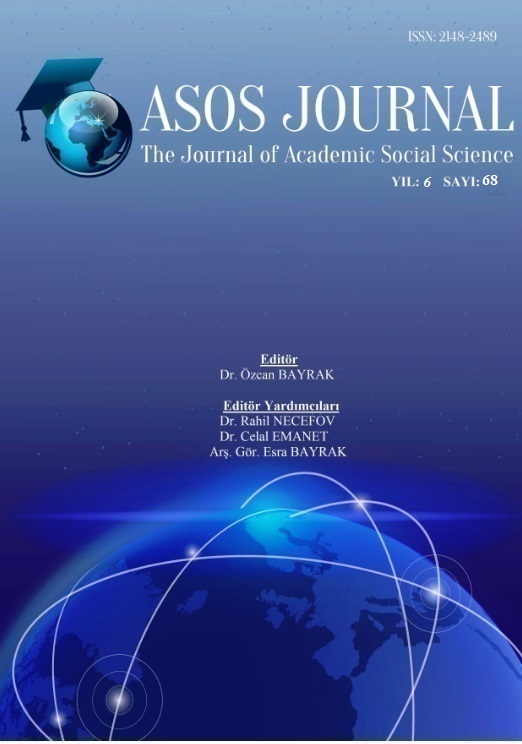AKIL OYUNLARI UYGULAMASININ İLKOKUL 4. SINIF ÖĞRENCİLERİNİN LİDERLİK BECERİLERİNE ETKİSİNİN İNCELENMESİ
Author :
Abstract
Bu çalışmada akıl oyunları uygulamasının ilkokul dördüncü sınıf öğrencilerinin liderlik becerilerine etkisinin incelenmesi amaçlanmıştır. Çalışmanın örneklemini İstanbul ili Bahçelievler ilçesinde özel bir ilkokulda öğrenim gören 40 öğrenci (20 deney grubu, 20 kontrol grubu) oluşturmaktadır. Veriler “Kişisel Bilgi Formu” ve “ Öğrenci Liderliği Uygulamaları Ölçeği” ile toplanmıştır. Çalışmada ön-test son-test kontrol gruplu model kullanılmıştır. Deney grubunda yer alan öğrencilere 6 hafta boyunca akıl oyunları uygulaması yapılmış, kontrol grubunda yer alan öğrencilere herhangi bir uygulama yapılmamıştır. Çalışmada elde edilen verilen normal dağılıp dağılmadığını belirlemek için Shapiro wilk testi ve çarpıklı-basıklık katsayıları kullanılmıştır. Deney grubunun ve kontrol grubun ön-test ve son-test puanları arasında anlamlı bir fark olup olmadığı ise bağımlı örneklem t-testi kullanılmıştır. Yapılan analizler sonucunda deney ve kontrol grubunda yer alan öğrencilerin ön-test puanları arasında anlamlı bir farklılık olmadığı, deney grubunda yer alan öğrencilerin akıl oyunları uygulaması sonrası son test liderlik puanlarının anlamlı düzeyde yükseldiği, kontrol grubunda yer alan öğrencilerde ise anlamlı bir farklılık göstermediği saptanmıştır.
Keywords
Abstract
This study aims to examine the effect of the mind games on leadership skills of fourth grade primary school students. Participants consist of 40 students (20-experimental group, 20-control group) who were studying in a private elementary school in Bahçelievler, Istanbul. "Personal Information Form" and "Student Leadership Practices Inventory" were used to collect the data. In this study pre-test post-test control group model was used. The students in the experimental group were attended mind games class for 6 weeks and the students in the control group were not given any applications. The Shapiro-wilk test and the skewness and kurtosis and t-test were used to analyze the data. Results of the analyses indicated that there was no significant difference between the pre-test scores of the students in the experimental and control group. On the other hand, it was determined that the students in the experimental group had a significant increase in post-test leadership scores and no significant difference was determined in the students in the control group.





